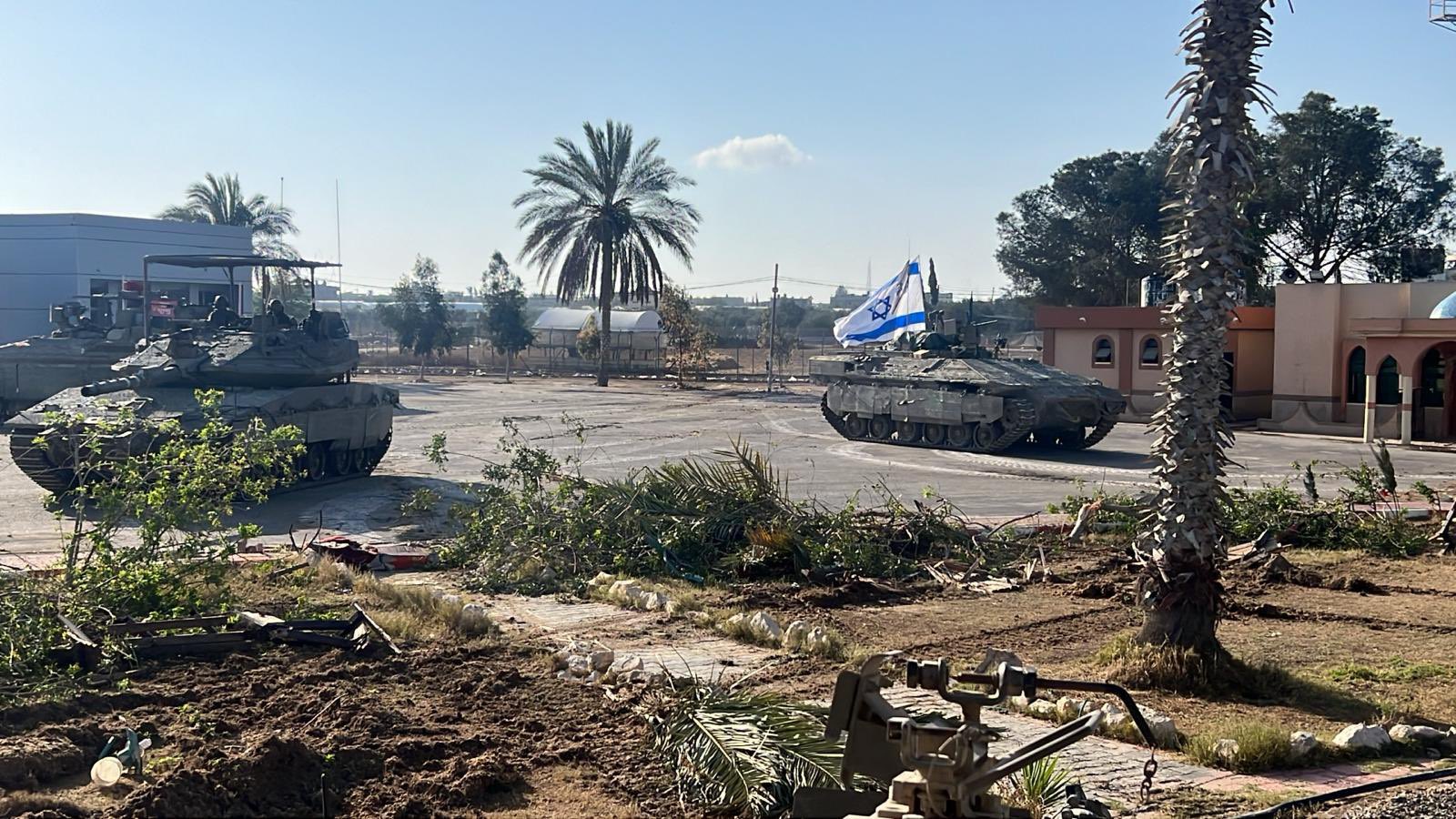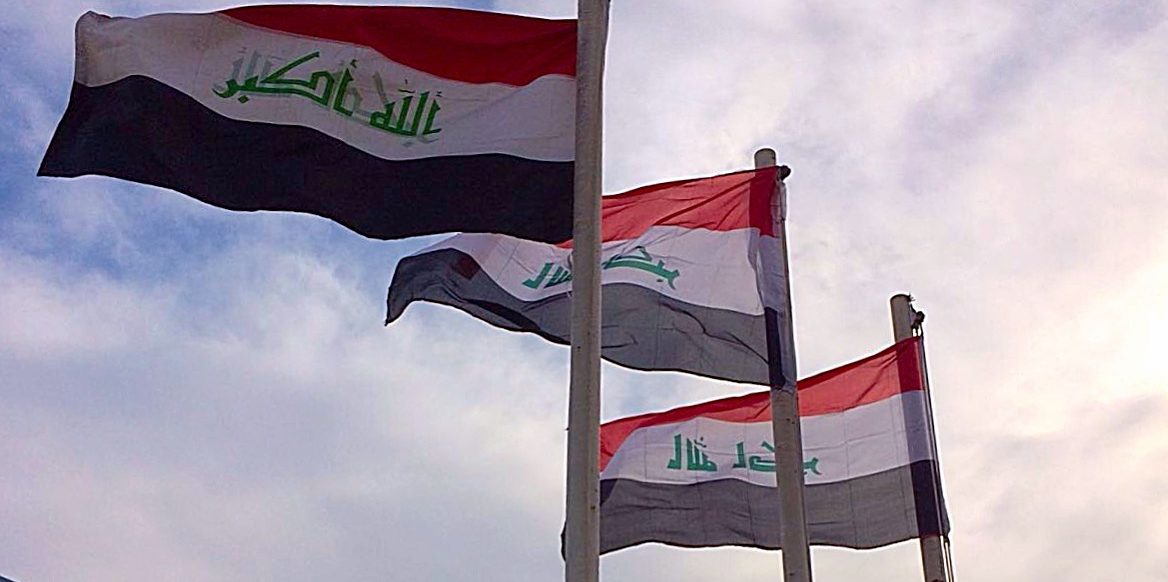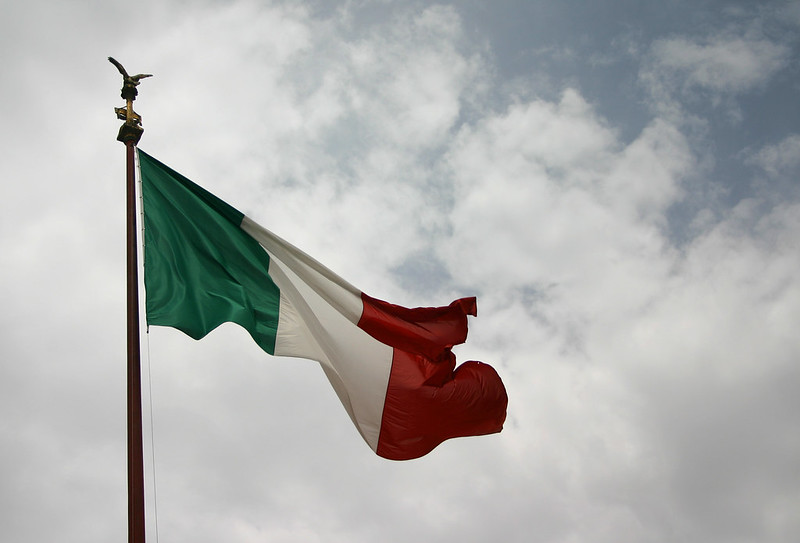The Israeli army announced that they seized control over the Palestinian side of the Rafah Crossing, which Gaza shares with Egypt, on Tuesday morning.
A Qatari delegation is heading to Cairo for another round of talks on Tuesday after Hamas accepted a truce proposal presented by Qatar and Egypt as Israel’s invasion of Rafah raises doubts over a possible deal.
Qatar’s foreign ministry spokesperson Majed Al-Ansari confirmed to Doha’s state news agency that Hamas accepted the proposal on Monday, describing the response as “positive.”
Al-Ansari also expressed Doha’s “hope that the talks will culminate in reaching an agreement for an immediate and permanent ceasefire” in Gaza as well as a prisoners and captives exchange deal.
Hopes over a ceasefire in Gaza on the seven-month mark of the war first emerged when Hamas accepted the proposal, which entailed a 124-day truce that would eventually lead to a lasting ceasefire.
In a statement on Telegram, the group said Hamas’s political bureau chief Ismail Haniyeh also held a phone call with Qatar’s Prime Minister Sheikh Mohammed bin Abdulrahman Al-Thani over the deal.
Gaza saw celebrations the moment the announcement came out, though it was dimmed when Israel’s war cabinet decided to move forward with the Rafah invasion.
In a statement, the office of Israel’s Prime Minister Benjamin Netanyahu claimed the proposal did not meet its demands. It also confirmed that it will send an Israeli technical team for Tuesday’s talks in Cairo.
“The War Cabinet unanimously decided this evening Israel will continue its operation in Rafah, in order to apply military pressure on Hamas so as to advance the release of our hostages and achieve the other objectives of the war,” the statement read.
Earlier reports on Sunday also said that CIA director William Burns is scheduled to visit Doha to meet with Qatar’s prime minister for an “emergency” meeting in a scramble for a deal.
Despite the latest efforts Israel began its planned ground invasion of the densely-populated city of Rafah in southern Gaza, hours after ordering hundreds of thousands to evacuate the eastern part of the area.
Proposal on the table
The proposal, seen by Al Jazeera, included a three-phased deal, each lasting six weeks.
The first phase would see a truce and the partial withdrawal of Israeli forces to the east. Throughout the same period, Israeli planes and drones would stop flying over Gaza for 12 hours on the days the captives would be released and 10 hours each day.
Hamas would release 33 captives, including women, the elderly, the ill and non-soldiers under the age of 19. For each living Israeli captive released, Israel would release 30 Palestinians from its prisons.
The deal also stipulated the release of 30 Palestinians for each civilian Israeli captive released alive, and one female soldier would be released in exchange for 50 Palestinian prisoners.
Internally displaced Palestinians would also be allowed to return to their homes in Gaza and reconstruction efforts would begin. The free flow of aid and entry of aid workers, including from UNRWA, would also take place in the same period.
Then in the second phase, Israel should halt military operations and completely withdraw from Gaza. Hamas would then release the remaining Israeli men, including soldiers, in exchange for an unspecified number of Palestinian prisoners.
During the third and final phase, Israel and Hamas would release the remaining captives and prisoners. A three-to-five-year reconstruction plan for Gaza and a possible end to the Israeli blockade on the Strip would also take place.
Israeli forces seize control over Rafah Crossing
The Israeli army announced that they captured control over the Palestinian side of the Rafah Crossing, which Gaza shares with Egypt, on Tuesday morning.
The Israeli military said that they established “operational control of the Gazan side of the crossing following intelligence that the Rafah Crossing in eastern Rafah was being used for terrorist purposes.”
Israel has long used the claim over the presence of Hamas fighters in areas where it carried out attacks in Gaza to justify its brutal moves. Since the beginning of the war, Israel has killed more than 34,700 people, of which more than 70 percent are women and children.
The vital Rafah Crossing is the only portal in and out of Gaza and has enabled thousands of injured Palestinians to travel abroad for treatment.
While aid has been barely crossing over into Gaza due to Israel’s complete blockade, the border served as the main entry point for aid trucks.
Rafah is densely populated with at least 1.4 million people, more than half of Gaza’s population, who have been sheltering in the city. Most of the people in Rafah were initially ordered by the Israeli military to evacuate the north in October.
In a statement on Monday, UNRWA stressed that it will not evacuate the area and will continue its relief efforts. The United Nations agency for children (UNICEF) also said that there is no safe place for 600,000 children in Rafah.
“Rafah is now a city of children, who have nowhere safe to go in Gaza. If large-scale military operations start, not only will children be at risk from the violence, but also from chaos and panic, and at a time where their physical and mental states are already weakened,” Catherine Russell, UNICEF Executive Director, warned.
Countries around the world including Qatar have long warned of the dangerous consequences of the Rafah invasion.
Speaking at a joint press conference with Spanish Prime Minister Pedro Sanchez on April 3, Qatar’s prime minister stressed that the move would only lead to another genocide.
“We don’t see any country but Israel supporting an attack on Rafah. You cannot corner the people, around 50 percent of the population in Gaza, almost 10 percent of the Strip, and attack them,” Sheikh Mohammed, who is also Qatar’s foreign minister, said.
“It won’t happen without committing a major genocide besides the genocide being committed in Gaza,” he added.
Meanwhile, Israel’s key ally, the United States, has voiced its concern over the Rafah invasion.
In a phone call between U.S. President Joe Biden and Netanyahu on Monday, the former “reiterated his clear position on Rafah.”
U.S. State Department spokesperson Matthew Miller echoed President Biden during a press briefing.
“We’ve made quite clear our position on Rafah for some time, which is that we cannot support an operation in Rafah as it is currently envisioned[…]we have not seen a humanitarian plan that is credible and that is implementable. And we believe a military operation in Rafah right now would dramatically increase the suffering of the Palestinian people,” Miller said.
Previous reports also pointed to Israel’s plans to forcibly expel Palestinians from Gaza to Egypt’s Sinai.
A 10-page leaked document dated October 13, 2023, by Israel’s Ministry of Intelligence, revealed Israel’s plans to establish tent cities and permanent ones in the northern Sinai.







